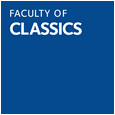The relationship between composition and performance lies at the heart of Homeric poetics, for scholars have long understood that the moment of performance is crucial for the generation, indeed realisation, of early Greek oral traditional epic. This paper proposes to analyse the recognition sequence(s) between Odysseus and Penelope in Odyssey 23 from this perspective, arguing that the episode can only fully be understood by recapturing the narratives performative strategies: that is, those strategies designed to engage the attention of an audience specifically at the moment of performance. I propose to elucidate this dynamism, for want of a better term, by setting out the structural grammar' underlying the construction of the scene, and then showing how the poet manipulates his audiences familiarity with that grammar in order to create uncertainty, excitement and meaning, to direct, misdirect and control their response, and on the smallest scales of narrative. When we appreciate the presence and pervasiveness of this interaction, not only can we feel the poetry's immediacy and vividness in a manner like that enjoyed by an Archaic Greek audience, but we can also apply a more nuanced understanding of Homeric technique to textual and scholarly zetemata, as with the famous (and so-called) 'interruption to the recognition sequence (111-163) in the current example. Aside from these two advantages, the demonstration of such a specifically 'orally-derived' strategy can only help further to illustrate the origin of Homer's aesthetic within a tradition of recomposition in performance, and so the interdependence of the conference's twin themes.



